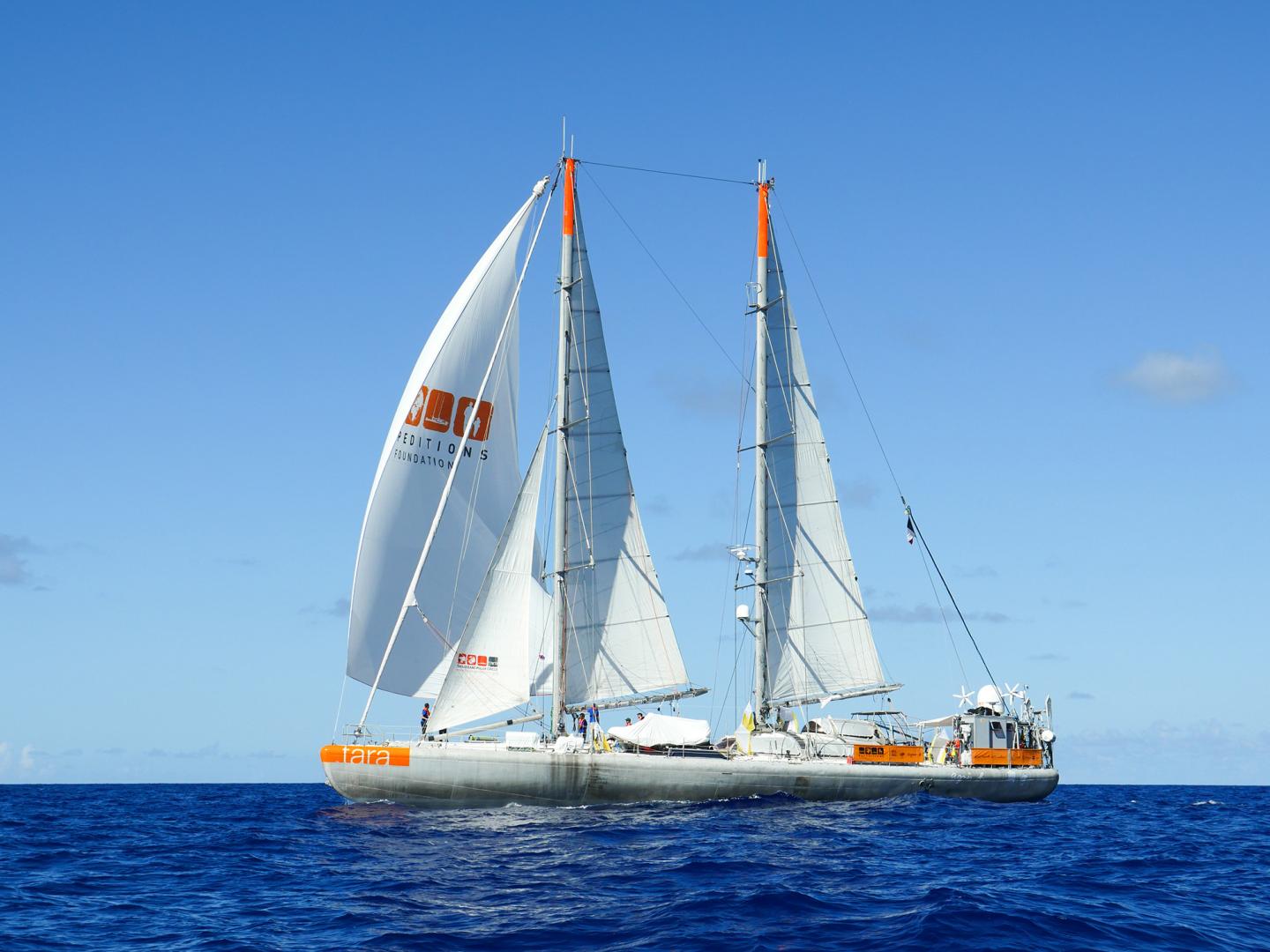
Credit: Maeva Bardy/Tara Expeditions Foundation
Advanced molecular techniques have revealed the diversity of a little-understood group of ocean microbes called protists, according to a new publication in Scientific Reports. The project analyzed samples collected by the global Tara Oceans expedition, documenting genomes that will help researchers identify protists throughout the ocean.
“So many ocean protists cannot be grown in the lab, so we must find ways to interrogate them in their environment,” said Mike Sieracki, lead author of the study. “Every drop of seawater contains microbial ecosystems we know very little about, and it is urgently important to understand this fundamental ecosystem of our ocean planet, Earth, and how it reacts to change.”
Protists form some of the ocean’s most complex relationships with other members of the microbial food web, including parasitism and approaches to eating that combine both photosynthesis and predation. The research team analyzed protists from across the Indian Ocean and Mediterranean Sea using single cell genomics, a suite of molecular techniques that reveals the genetic blueprints of individual cells. This is the first time that this approach has been applied to entire microbial communities from different places.
Sieracki is currently a program director in biological oceanography at the National Science Foundation. He conducted this research while working as a senior research scientist at Bigelow Laboratory for Ocean Sciences, where he helped found the institute’s Single Cell Genomics Center. The researchers used the Center’s advanced technology to individually sort and analyze the protists, revealing genetic code that had never been identified before.
“Protists are the ocean’s most numerous predators, yet we still know very little about who they are and what they do in nature,” said Ramunas Stepanauskas, a senior research scientist and the director of the Single Cell Genomics Center. “We are starting to unveil the full extent of the diversity and ecological roles of these fascinating components of marine ecosystems.”
The researchers documented over 900 single cell genomes, which scientists around the world will be able to reference when identifying protists in the future. This crucial step will help researchers map microbial communities using metagenomics, a powerful way of simultaneously analyzing entire communities.
The project, funded by the National Science Foundation, also represents an important finding and significant output of the Tara Oceans expedition. This sailing voyage sampled the global ocean between 2009 and 2013, taking a snapshot of the microbial communities thriving around the world and capturing the incredible variability of planktonic life. Sieracki and Nicole Poulton, another author on the paper, both sailed on the expedition as lead scientists.
“Protists are some of the next great unknowns out in the open ocean,” said Poulton, a research scientist at Bigelow Laboratory and director of the Facility for Aquatic Cytometry. “Although they are much less abundant than bacteria, we are finding that examining protists reveals much more complexity within marine ecosystems.”
Bigelow Laboratory houses the samples collected by the Tara Oceans expedition for single cell analysis. Poulton hopes to use the same techniques to explore protists from other ocean regions, progressively filling in the gaps in our knowledge of the ocean and helping other researchers map microbial communities in greater detail.
“Single cell genomics has allowed us to capture and understand the biodiversity in the ocean at a much different level than what was previously available,” Poulton said. “These genomes will allow us to learn how these important microbes function within their environment.”
###
Bigelow Laboratory for Ocean Sciences is an independent, nonprofit research institute on the coast of Maine. Its research ranges from the microscopic life at the bottom of marine food webs to large-scale ocean processes that affect the entire planet. Recognized as a leader in Maine’s emerging innovation economy, the Laboratory’s research, education, and technology transfer programs are contributing to significant economic growth. Learn more at bigelow.org, and join the conversation on Facebook, Instagram, and Twitter.
Media Contact
Steven Profaizer
[email protected]
Original Source
https:/
Related Journal Article
http://dx.



